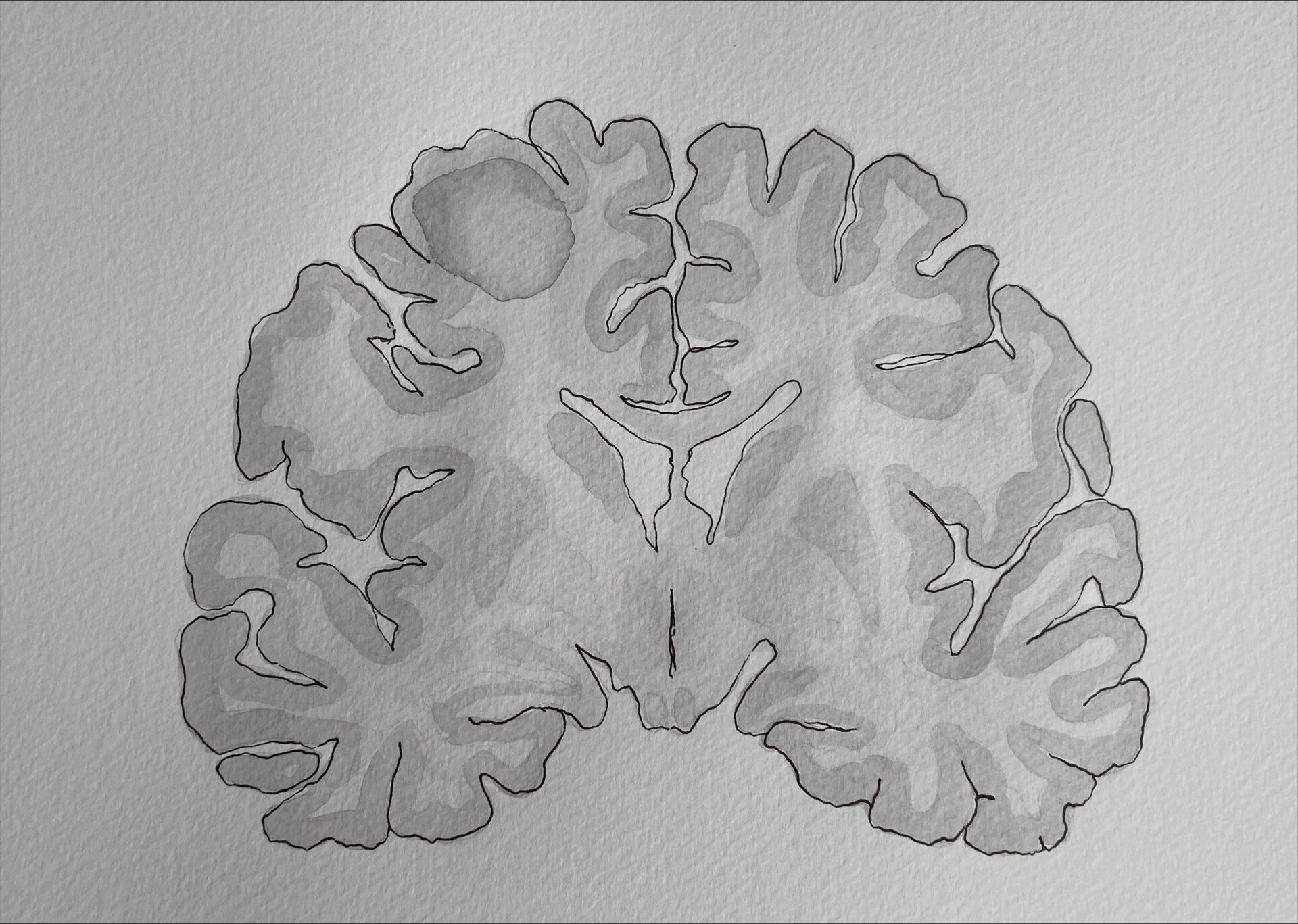Clinical Curiosity and Compassion
I chose to paint my art piece in black and white, both to represent the MRI that I saw, but also to highlight the black-and-white situation the patient was in. Whilst symptoms and signs can leave room for interpretation, other diagnoses, and perhaps hope, a clear MRI like my patient had does not. It is both literally and figuratively black and white.
I feel this encounter has taught me the importance of balancing my academic curiosity with empathy and compassion. It could become easy to start to be desensitized to the realities of patients’ lives when we approach them as mere learning opportunities. Patients are individuals with their own unique experiences, fears, and hopes, and we have a responsibility to be sensitive to this and provide them with compassionate care. This is something I discussed with the doctor at the time, who explained how at times a doctor’s role is not dissimilar to that of a detective, and it can be very satisfying when a diagnostic test like an MRI proves you right. You can go home thinking how clever you are and that you did such a good job, whereas the outcome for the patient might be much sadder, their whole life and future might have changed in that moment.
Whilst making this art piece I reflected on how I had felt seeing the MRI. I do think that maintaining an interest in learning about medicine is of great importance. As medical professionals, we must stay engaged and passionate about our work to provide the best possible care to our patients. Without that spark, we risk becoming burnt out and losing the motivation to provide excellent care.
My encounter with this patient has taught me the importance of balancing my excitement for learning with empathy and compassion for my patients. I am sure I won’t be alone in coming to this realisation, probably every medical professional has at some point, but I am grateful for the opportunity to have learned this lesson early on in my training and will strive to apply it throughout my career.
Comments
Add legacy comments here

This artwork really resonates with me. I’m a person who is also naturally curious and feels great satisfaction when I solve problems, learn new skills or find out about new aspects of medicine. The simplicity of the drawing is what caught my eye. I like the way that it depicts the simplistic exterior of the brain with the winding sulci and geometrical gyri. This contradicts the complexity of the brain, which is concealed by this beautiful façade. I believe this drawing is very analogous to the artists’ experience. It’s important to appreciate the complexity of both science and humans. Showing empathy and compassion towards patients is essential and should never be desensitized by our own curiosity and drive to succeed.